 Pets in Space 4 Sampler by Alexis Glynn Latner, Anna Hackett, Cassandra Chandler, Donna McDonald, Pauline Baird Jones, S.E. Smith, Tiffany Roberts, Veronica Scott
Pets in Space 4 Sampler by Alexis Glynn Latner, Anna Hackett, Cassandra Chandler, Donna McDonald, Pauline Baird Jones, S.E. Smith, Tiffany Roberts, Veronica Scott Format: ebook
Source: publisher
Formats available: ebook
Genres: science fiction romance
Series: Pets in Space
Published by Cats, Dogs & Other Worldly Creatures Books on May 4th 2019
Publisher's Website
Goodreads
Pets in Space® 4 Sampler: Stories & Art
from some of today’s best known and award winning Science Fiction Romance authors!NEW & EXCLUSIVE short stories from
* S.E. Smith, Lords of Kassis series
* Anna Hackett, Galactic Gladiators: House of Rone
* Tiffany Roberts, The Kraken series
* Veronica Scott, Star Cruise series
* Pauline Baird Jones, Project Enterprise series
* Donna McDonald, My Crazy Alien Romance series
* Cassandra Chandler, The Department of Homeworld Security series, and
* Alexis Glynn LatnerNot enough? Check out the preview chapters of their upcoming Pets in Space 4 stories from:
Laurie A. Green, Regine Abel, JC Hay, E. D. Walker, and Kyndra Hatch! Finish off this fabulous Sampler with gorgeous alien artwork from Tiffany Roberts.
My Review:
 When I received multiple invitations to grab this FREE sampler this weekend, I just couldn’t resist. I’ve loved every single one of the Pets in Space series, so I was certainly up for a teaser for the next one.
When I received multiple invitations to grab this FREE sampler this weekend, I just couldn’t resist. I’ve loved every single one of the Pets in Space series, so I was certainly up for a teaser for the next one.
Don’t let the words “sampler” or “teaser” fool you. There are plenty of complete stories in this collection. But those complete stories are also teasers or prequels for stories that will be in the next Pets in Space collection (Pets in Space 4) and are also introductions to worlds that these authors have already created and have appeared in previous Pets in Space collections.
And there are some outright teaser chapters. I’m certainly officially teased all the way around!
This was a collection where I enjoyed all the stories, although often, as was intended, I found myself wanting more. Of course that more is going to be provided in Pets in Space 4.
My favorite prequel in this anthology was Anna Hackett’s House of Rone: Beginnings. While the House of Rone series is a new series for the author, it is a spinoff from her terrific Galactic Gladiators series. Readers of the series have met Magnus and Jax before, but not like this. Magnus has dropped a few sparse hints of what his life was like before Kor Magna, and Beginnings is that story in full. It’s a great place to get into the world of the Galactic Gladiators without having to have read any of the previously published books.
I also enjoyed Pauline Baird Jones’ Code Blue. It takes place in her Project Enterprise series, and while I’ve read the first book or two in the series, I’m not as familiar with it as I’d like to be. But the love I have for this story without having much background means that it can be joyously read by anyone else who hasn’t read the series.
What makes this so much fun is that it is one of those classic stories of family lore, as the protagonists, Doc and Hel, are telling their children, yet again, the story of how the family pet Piggy Love, first came into their lives – and sort of saved them. By grunting like the little piggy that he is. The story is light and fun and Piggy Love is absolutely adorable – which is way more than can be said about the vulture-people he helps them overcome.
But the story I absolutely loved in this bunch was The Magic Mountains by Alexis Glynn Latner. It’s the longest story in the book, at novelette (very short novel) length. And while it is set in the same future history as stories in the previous anthologies, I don’t remember those and this story stands on its own.
 The Magic Mountains is, on the one hand, a story about a visit to an interstellar amusement park that goes very, very wrong. It also kind of a “wolf with red roses” story, in that the heroine finds herself attracted to her extremely dangerous partner in this wild adventure. That she’s an academic who is able to give in to the wild side in herself is part of what makes this one so delicious. And unlike the usual symbolism of the wolf with red roses, this one feels like it has the chance of a happy ending – because the wolf treats her as an equal and not as either a victim or as potential prey.
The Magic Mountains is, on the one hand, a story about a visit to an interstellar amusement park that goes very, very wrong. It also kind of a “wolf with red roses” story, in that the heroine finds herself attracted to her extremely dangerous partner in this wild adventure. That she’s an academic who is able to give in to the wild side in herself is part of what makes this one so delicious. And unlike the usual symbolism of the wolf with red roses, this one feels like it has the chance of a happy ending – because the wolf treats her as an equal and not as either a victim or as potential prey.
Escape Rating B+: For any reader who loves SFR, or anyone who is looking for an introduction to the genre, and especially anyone who loves the Pets in Space collections and feels like October (and Pets in Space 4) is a long, long time from now, this sampler is a real treat. And it’s FREE! Right HERE!
I’m certainly teased, and I’ll be back for the complete collection, in all of its reading glory in October!

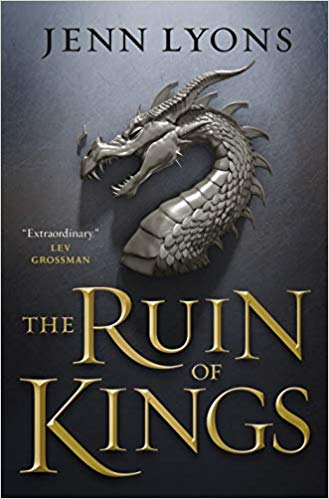 The Ruin of Kings (A Chorus of Dragons, #1) by
The Ruin of Kings (A Chorus of Dragons, #1) by 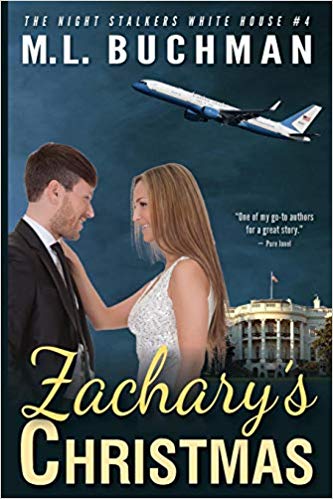 Zachary's Christmas (Night Stalkers White House #4) by
Zachary's Christmas (Night Stalkers White House #4) by 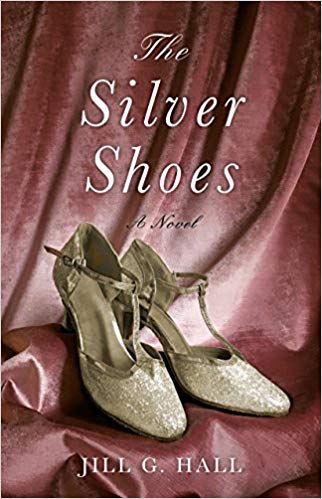 The Silver Shoes: A Novel by
The Silver Shoes: A Novel by 
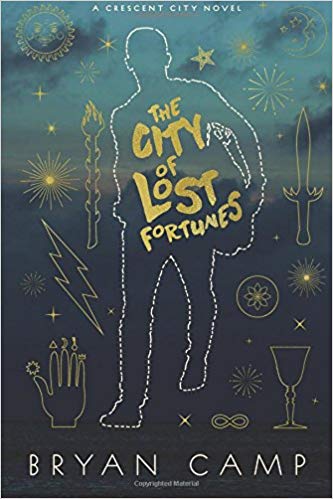 The City of Lost Fortunes (Crescent City #1) by
The City of Lost Fortunes (Crescent City #1) by 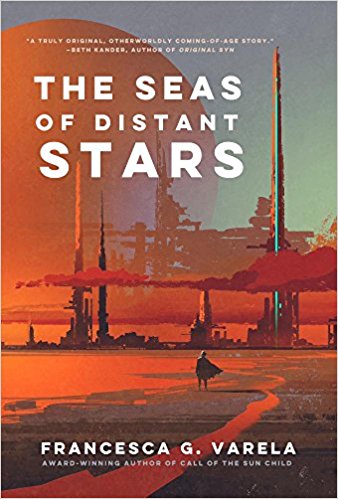 The Seas of Distant Stars by
The Seas of Distant Stars by 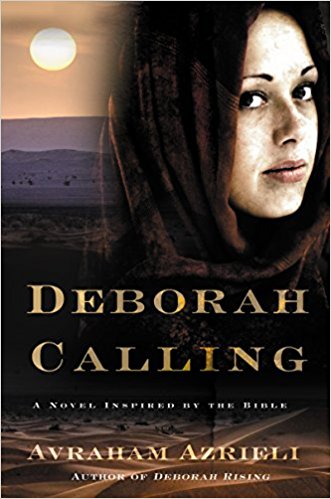 Deborah Calling: A Novel Inspired by the Bible by
Deborah Calling: A Novel Inspired by the Bible by  Deborah Calling picks up right where
Deborah Calling picks up right where 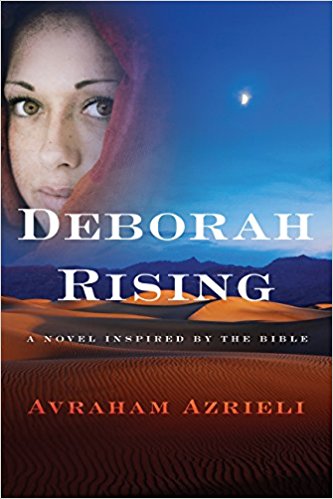 Deborah Rising by
Deborah Rising by 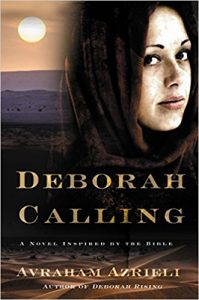 Then again, when the story ends she’s only 14. She has time yet. And another whole book (
Then again, when the story ends she’s only 14. She has time yet. And another whole book (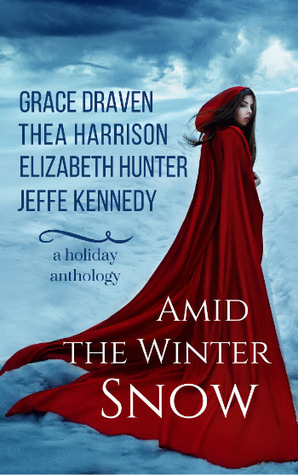 Amid the Winter Snow by
Amid the Winter Snow by 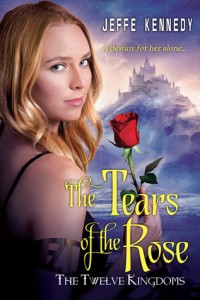 I read The Snows of Windroven first. While I have enjoyed all of the
I read The Snows of Windroven first. While I have enjoyed all of the 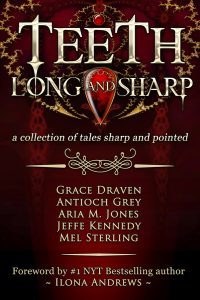 Every time I pick up one of Grace Draven’s novellas (
Every time I pick up one of Grace Draven’s novellas ( Big Sky, Loyal Heart (Henderson's Ranch, #5) Format:
Big Sky, Loyal Heart (Henderson's Ranch, #5) Format: 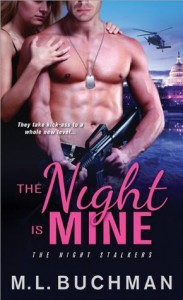 As the long, overarching story stands in 2017, Mark Henderson and Emily Beale, the hero and heroine of the military suspense romance The Night is Mine, have moved on, not merely to the second chapter in their lives, but actually the third. In their second chapter, they flew firefighting hotshot crews to wherever the fires were hottest (and conducted a few secret quasi-military operations on the side) in the
As the long, overarching story stands in 2017, Mark Henderson and Emily Beale, the hero and heroine of the military suspense romance The Night is Mine, have moved on, not merely to the second chapter in their lives, but actually the third. In their second chapter, they flew firefighting hotshot crews to wherever the fires were hottest (and conducted a few secret quasi-military operations on the side) in the 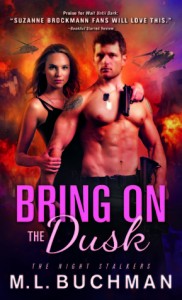 Although I have not read any of the previous books in the Henderson’s Ranch series, I have read most of the
Although I have not read any of the previous books in the Henderson’s Ranch series, I have read most of the